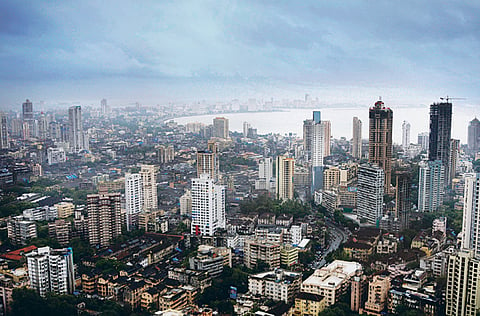India’s real estate has changed in 90 days
Developers are doing everything in their power to get NRIs picking up homes

As the world restarts gradually after coming to a screeching halt, how will the Indian real estate sector look post-COVID-19?
The battle had commenced long before the COVID-19 storm. The real estate sector was already beset by policy changes, regulatory reforms, price corrections and reduced demand because of a stuttering economy. Consolidation amongst developers had started, causing Grade A names to gain market share and smaller players to experience increasing headwinds.
In the last three months, all previous preconceptions of market fundamentals had to be revised. The sector necessarily embraced technology as the new catalyst. The phenomenon of NRIs investing in property without moving out of their homes, without physical meetings, and via online transactions went from futuristic concept to on the ground reality in just 90 days.
Exploratory talks are happening via video conferencing, and virtual tours have replaced site visits. Advantage NRIs.
Since January, the market share of Grade A developers has been rising steadily. These players have been quite proactive with customer benefits like back-loaded payment plans, stamp duty and registration waivers and EMI holidays. In NRI markets, Grade A developers have seen strong traction for their products.
Pune, Bengaluru, Mumbai and NCR markets have accounted for the majority of these sales.
Change is set for good
There will be significant changes in both real estate products and consumer behaviour post-COVID-19. With work from home becoming acceptable in corporate culture, the demand for a “flexible home” has increased.
There has been a surge in “upgrade buyers” – people upgrading from lower unit configurations to higher ones. Developers have taken cognizance of this and have started developing smart products which provide the flexibility to work/study from home.
Protected environments
Township projects are expected to see a significant demand uptick as people will prefer to work, live and recreate in such protected environments. For many tenants, the lockdown has come as a watershed moment and they are taking the plunge into home ownership rather than paying rising rents with zero returns. The freedom of owned rather than rented property has been underscored heavily during the coronavirus pandemic.
Most NRIs inevitably return to India, and the investors among them have been building their Indian real estate portfolios to ensure consistent income back home. While they have been focusing on both residential and commercial properties to achieve this, the available payment plans in under construction projects are unprecedented in the coronavirus-beset market.
On the other hand, ready-to-move properties mitigate construction risks and are seeing greater traction with NRI investors. Some projects even offer assured rentals of up to 4 per cent on purchased apartments for a fixed period.
Commercial projects appeal to NRIs keen to secure a second income in India. The RoI (return on investments) on these products ranges from 10-12 per cent pre-tax, and units are comfortably priced between 3.5 million rupees to 6 million rupees. Some even come with flexible payment plans.
Let’s wait for a price shift
The typical property cycle – the recurring series of events, reflected in demographic, economic and emotional factors, which impact real estate demand and supply - has always been of 7-8 years from a capital gains perspective. However, prices have softened in the last few years and in the current pandemic, are at rock-bottom levels.
The trend of sales exceeding launches has been prominent for some time now. When demand finally exceeds supply, prices surge upwards and investors will be able to book substantial profits on their investments.
To maximize the earning potential of Indian real estate, the time to invest is definitely now. The price curve will head upwards after the COVID-19 crisis, especially in the residential segment where “home” is now the central concept in the ability to work from home, and the increasing preference to stay at home in a world beset with uncertainties.
These dynamics will persist even after the crisis passes.
- Shajai Jacob is CEO – GCC at Anarock Property Consultants.









